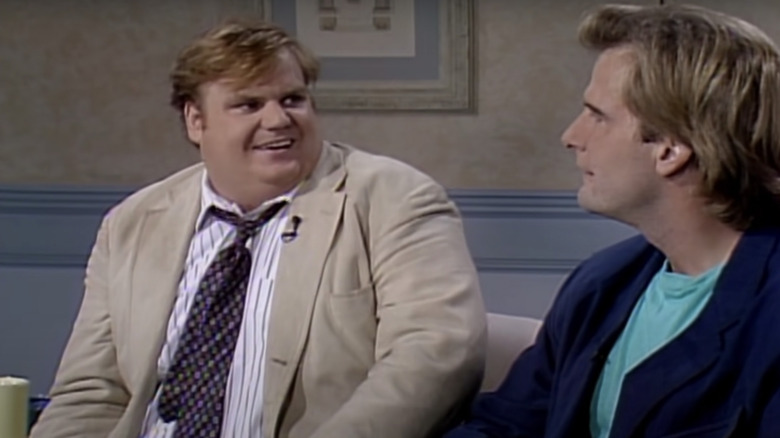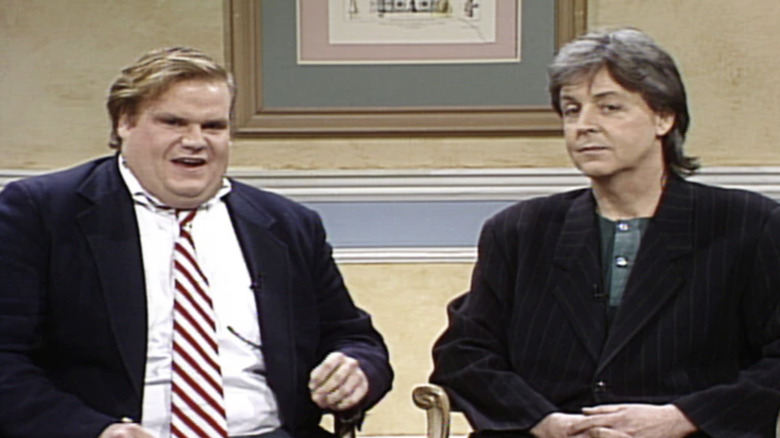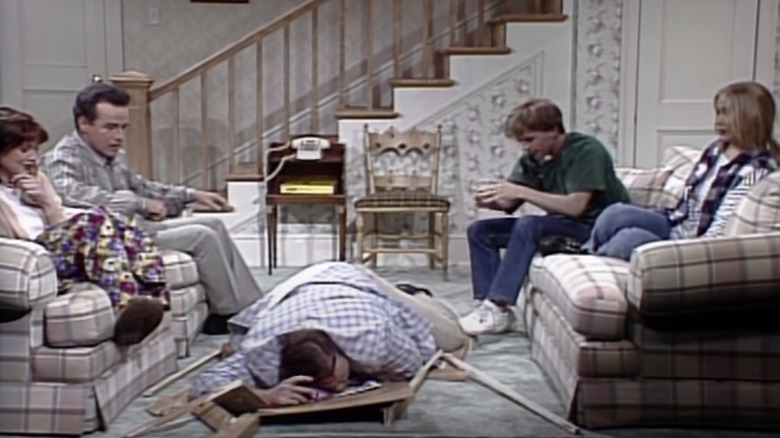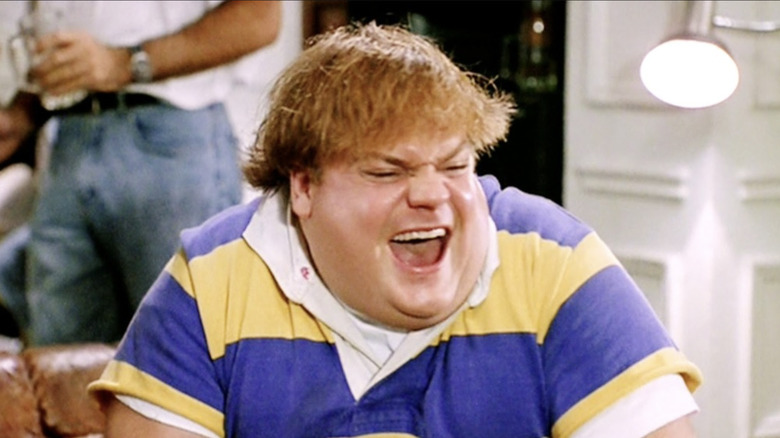
Hollywood is full of mediocre comedians who get a few laughs while hosting the occasional "Saturday Night Live" episode or voicing an old, rusted tow truck in a Pixar movie, but they'll never be able to compete with the legends. We all have different opinions about who we consider to be comedy greats, but a few of my personal favorites are Richard Pryor, George Carlin, and Chris Farley. That last pick might raise a few eyebrows, but I'm more than willing to defend the man who threw himself onto coffee tables and danced with Patrick Swayze just to make others laugh -- and boy did they.
Similar to the Supreme Court's views on hardcore porn, comedic perfection is obvious when you see it. Audiences recognized it immediately in Farley. The comedian dominated any stage or set he was ever on and relentlessly attacked onlookers with unbridled, fearless comedy that left them perpetually hungry for more. In the documentary "I Am Chris Farley," former SNL writer and "Better Call Saul" actor Bob Odenkirk recalls the comedian's power on stage: "It was really that feeling of 'I get it. I'm only going to watch that guy if he's on stage because there is nothing touching him.'"
For five seasons on "SNL," Farley kept audiences in stitches with characters like Gap Girl Cindy, Lunch Lady, and Matt Foley. Even so, the writer behind one of his most popular skits, "The Chris Farley Show," never thought it would make it to the airwaves.
'I Thought It Was Too Inside'

Farley was four episodes into his "SNL" career when he battled Swayze for the Chippendale's spot, and it was his first starring role on the show (via The Ringer). From the first thrust, the young comedian proved he wasn't afraid to go big and literally bare it all on stage, which led many to compare him to another famous "SNL" wild-man. "He had automatic charisma like John [Belushi]," says Dan Aykroyd in "I Am Chris Farley." Lorne Michaels, the creator of "SNL," refers to Farley in the documentary as "the child John Belushi and Dan Aykroyd never had." The comparison wasn't unfounded. Both comedians pushed limits, on and offstage, and committed themselves to every character they ever portrayed. Still, there was a softer side of Farley that audiences didn't see ... until it became the focus of an "SNL" skit.
Farley was a boisterous, attention seeker onstage, but Michaels describes him as "timid and awkward" behind-the-scenes. According to a 2022 interview with Entertainment Weekly, "SNL" scribe Tom Davis thought it would be humorous to play with this dichotomy onscreen and asked head writer Jim Downey for help. Downey wrote a skit which featured Farley as a starstruck host who interviews celebrities. Downey never thought the idea would get approved:
"We submitted it, actually, as a joke at the read-through. I thought it was too inside, so it would never make it on the air, but Lorne liked it immediately."
"The Chris Farley Show" premiered on "SNL" on October 5, 1991. The episode featured a bumbling Farley, stumbling through an interview with a visibly uncomfortable Jeff Daniels, instead of the energetic oddball who gracefully performs falls and twirls. But viewers were, once again, charmed by Farley's stage presence. The skit was a surprise success.
Fat Guy Who Falls

"SNL" launched Farley's career into the spotlight, helping to land him roles in 1990s comedy films like "Tommy Boy," "Black Sheep," and "Beverly Hills Ninja." However, it may have also contributed to his insecurities and personal struggles. Farley spent five years playing the funny fat guy on TV and he was damn good at it, but he grew tired of the schtick. According to The Ringer, he frequently summed up his career with the phrase, "Everybody laughs when fatty falls down." Maybe this is why he enjoyed doing "The Chris Farley Show" so much.
Downer told Entertainment Weekly he was prepared to let the segment die after two episodes, but Farley fought for one more. Maybe he insisted because he had the chance to run the skit with one of his favorite musicians, Paul McCartney, or maybe he just wanted to keep doing a skit that didn't mock his weight. Farley got his cringey, yet hilarious, interview with McCartney, and then the skit died forever. The comedian went back to what was expected of him and played the "fatty [who] falls down."
Farley's Legacy

Farley was clearly frustrated with his typecasting, enough so that it might've well helped lead to him developing a self-destructive lifestyle and drug addictions. Being the funny, fat guy had made him famous, and he loved the laughs he got, but he hated the stereotype, and the struggle between the two became too much. "When people put out an image of themself and then in some way have to live that life," Michaels says in "I Am Chris Farley," "people want that, expect that, and if you don't get to go off stage and somehow restore yourself, the pull of it is the flame, and you can get burned to a crisp."
Despite the outpouring of affection he received every Saturday night and throughout his short film career, Farley struggled with low self-esteem and addiction his entire life -- two problems that no amount of laughter could fix. Farley ultimately from a drug overdose on December 18th, 1997 at the age of 33. As far as I'm concerned, though, Farley wasn't just a fat guy who earned cheap laughs with face plants, or an awkward, timid person who struggled with the pressures of fame. He was a talented comedian who deserved the kind of happiness he always brought to others.
Read this next: The 20 Most Influential Comedy Stars In Movie History
The post One Of Chris Farley's Signature SNL Skits Was Never Meant To Make It To Air appeared first on /Film.
0 Comments